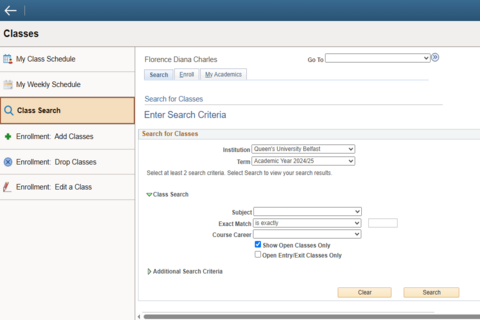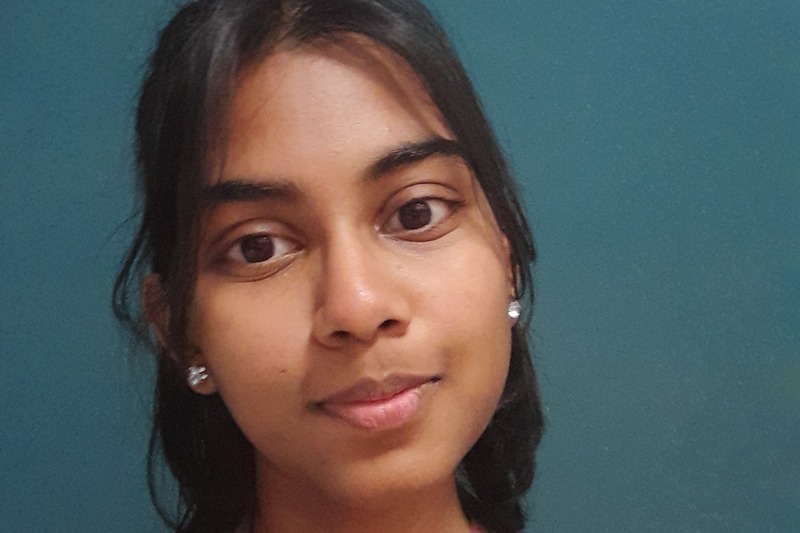Your Guide to Auditing Modules and Successfully Nailing Your Future-Ready Award Proposal
PG student Florence looks back on her experience of auditing modules outside of her course; and explains how students can submit activity proposals for Future-Ready Award accreditation.

Hi everyone! I’m back with a little story. This time about something quite special that didn’t go the way I thought it would but left me with a lesson that I think might help some of you too.
Auditing Modules
You probably already know I love exploring things outside my main field. From my other blog you would know that I had ended up auditing modules in a completely different School and Faculty. Yep! While doing my MSc in Clinical Health Psychology, I decided to sit in on a few undergraduate music modules (BMus: MUS 1002 - Introduction to Music, MUS 3088 - Music in Culture, MUS 3008 - Music and Medicine), just out of sheer curiosity and my growing love for the interdisciplinary connections between music and psychology and music in general.
Back then, I didn’t even know you could do that. So, lesson 101 for this blog: be aware of this opportunity so you don’t miss out!
QSIS actually lets you audit or drop modules, but it’s not something many students, especially postgrads, really talk about. Once you log in to your QSIS account, just go to “Classes” and look for “Class Search.” There, you can find courses at your level, a level above or below, pick your term-times, locations, and more. If you plan well in advance, you can audit modules online through QSIS and if you’ve missed the window, your best bet is to approach the relevant professors directly. All of them are really supportive of our initiative to learn something more!

Inside the QSIS platform
Well, in my case, I wasn’t aware of the QSIS process at all and I’m pretty sure I missed the timeframe too! So, I started by just asking at the Music Building reception, and they kindly pointed me to Prof. Simon Mawhinney. He helped me pick modules that matched my level, so I wouldn’t end up in something way over my head! He also gave me access to Canvas and all the materials I’d need, just like any other student taking those modules for credit as a part of their course.
While auditing, I made sure to really engage. I’d speak with the lecturers during breaks, and they were all so supportive, never making me feel left out in class as well. The way they saw me as ‘someone bringing something different to the table’ made me feel included, not singled out or out of place. They guided me through things I struggled with and gave me ideas for how to apply this knowledge within my field, especially with Music and Medicine (Special shoutout to Dr. Zeynep Bulut). It was all self-driven; not a part of my Rep role, no credits attached, no grades to chase. Just pure learning for the sake of it.
Now, what did all this lead to? Way more than I expected, honestly. The first music module I audited inspired me to sign up for AIMday Predictive Health Analytics organised by the Mathematical Sciences Research Centre in association with Momentum One Zero, where I facilitated a workshop for a music related start-up tech. That same connection turned into a summer internship with Lú Music Technologies Ltd, and now I’m thrilled to say I’m working part-time with them, with a good chance it might grow into a full-time role too!
Tour of the Music Building at Queen's
Future Ready Award Proposal: The Crash Course
Well, we’re all aware of the Future-Ready Awards and the skillsets they help us build. I’ve always loved how these awards are offered by different departments, each with their own aims, values, and unique outcomes. I’ve personally taken up around 5-6 single and combined route activities so far. Seeing the real impact and results from these, I thought: why not make auditing modules a proper Future-Ready Award activity too?
I had started up this side quest by reading the following process. Then, I sat down, wrote out my idea, shared my experience in detail and sent it to the Future-Ready Award Team through the given email-id on the weblink. The core of it was simple:
- So many students don’t even know we can audit modules outside our main discipline.
- Most people only find out about it too late, especially master's students with tight timelines find it like an opportunity waste missed.
- There’s no formal recognition for how much value this can add to your skill set, connections, or future career.
My suggestion included an assessment to let the students submit a short reflective piece about what they learned and how they’ll apply it so that this effort is acknowledged appropriately.
Phil Wren, Student Development Co-ordinator and one of our career consultants, took it to the panel for review during their monthly review. They came back with thoughtful questions: Who guided you? Did you work closely with module leaders? Was it part of your Rep duties?
Future-Ready Award achievements
I explained that while I got help from the Music School, this was completely independent; just me, my curiosity, and a lot of asking around. In the end, they said that for an activity to be accredited, it needs two staff members to formally oversee it for all students and act as contact points across the university.
Since I owned the process myself, it didn’t quite fit that framework. So officially, it won’t be its own standalone Award, but I can use it as an activity in a Combined Route for my Future-Ready Award, and that’s still pretty cool!
I wasn’t even in a position to formally apply for this as a student, yet Queen’s didn’t dismiss my idea, reviewed it thoroughly and had helped me understand the process behind approving activities for this. Even though it couldn’t be officially accredited, they recognised the impact it had and encouraged me to carry this win forward, even if it’s just for me. (Hey y’all, now this is what I call a one-of-a-kind student experience!)
Here’s the best part, though: even though it didn’t become an official pathway, I still feel proud. I learnt that sometimes your ideas don’t get stamped and signed and turned into policy overnight and that’s okay. Sometimes the point isn’t the stamp. The point is that you tried, you put it out there, and you planted a seed that someone else might water later.
How valuable is the Future-Ready Award for students?
So, if you’re reading this and you’re curious about something...anything; try it. Ask around. Sit in on a module you have no background in. Build bridges between fields you’d never think to link. You never know what doors it’ll open or who you’ll meet along the way.
I started this blog saying that some things don’t go the way you plan. But honestly? Sometimes they go exactly the way they’re supposed to.
Until next time! Keep learning, Keep suggesting, and Keep nurturing what might bloom later!
Signing off – Florence Diana Charles, your study break storyteller and campus compass!!
Catch you in my next blog!
P.S. Even though they’re zero-credit, audited modules will still show up on your transcript.
Find out more
Florence Diana CharlesMSc Clinical Health Psychology | Postgraduate Student | IndiaHi, I am Florence Diana Charles. I’m an interdisciplinary enthusiast who thrives in the in-between; where ideas blur and psychology just makes sense as it blends. I care about meaning: in people, in patterns, in how we think, feel, and grow. I’m endlessly curious, sometimes stubborn, and always trying, even on my busiest days. I don’t have it all figured out, but I’m here to keep learning, keep questioning, and keep showing up. Hope to see you around in my blogs!
|
 |